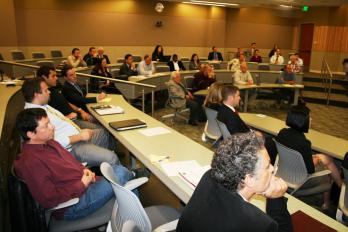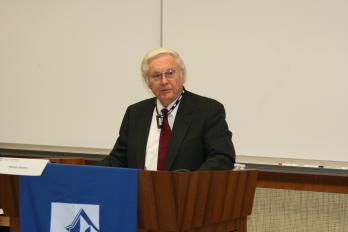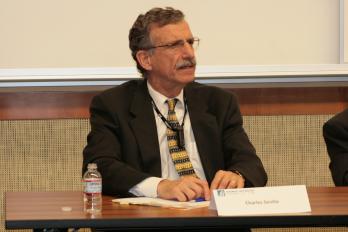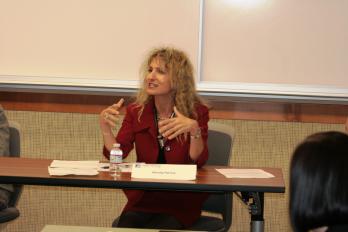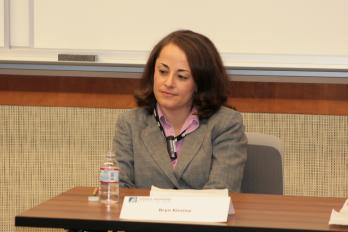CLS Holds Panel on Ethical Challenges of Practicing Criminal Law
April 20, 2011
“Good ethics is good practice of law.” Those words from criminal defense attorney Charles Sevilla seemed to summarize the message of the TJSL Criminal Law Society’s panel “Ethical Challenges in the Practice of Criminal Law,” held April 19 at the law school.
In addition to Sevilla, the panel included Fourth District Appeals Court Associate Justice Richard Huffman, Deputy District Attorney Wendy Patrick and Deputy District Attorney Bryn Kirvina.
The panelists brought up some seemingly impossible, Catch-22 type ethical dilemmas that lawyers have to face sometimes. For example, Sevilla outlined this situation: You are a defense attorney and your client has told you he isn’t going to show up for court that day. When the judge asks you where your client is – what do you do? You can’t violate attorney-client privilege and you can’t lie to the judge. Sevilla suggested you would have to find a way to communicate to the judge that you “can’t answer,” even if the judge threatens you with contempt.
One of the hottest ethics issues in California, according to well-known legal ethics expert Wendy Patrick, is the mis-use of social media by lawyers and judges. Patrick said that online activities are allowed but they have to fit within the rules of ethics. For example if a judge is Facebook friends with an attorney who is appearing before him/her, the judge must “un-friend” the attorney and publicly disclose that they were Facebook friends. Also, Patrick says that publicly posting the status of your upcoming cases could violate client confidentiality as well as rules that govern attorney advertising.
Also talking about social media, Justice Huffman told the attendees that it “is unethical to publicly discuss any pending case, whether it is yours of not. Social media is becoming a problem for judges who should ask themselves – ‘what does this look like’? And Justice Huffman spoke of the appearance that it may have –reminding everyone that “a judge must disclose any fact where a reasonable person may believe a judge cannot be impartial.”
Justice Huffman said the two issues his appeals court division court sees most often are alleged prosecutorial misconduct and alleged ineffective assistance of counsel. One important bit of advice he gave attorneys and would-be attorneys in the room is to make sure you have a challenge on the record to any issues you don’t like that come up at preliminary hearings or trials — instead of bringing it up for the first time on appeal. “We see this again and again and again,” he said. “We have to have something (a record) to work with.”
Bryn Kirvina noted that there places an attorney can go for advice with an ethical issue – such as the San Diego County Bar’s legal ethics hotline. She noted that the advice is “not binding, but it’s persuasive.” And Sevilla added that it’s important to document the steps you’ve taken to show that you are trying to do the right thing.
One other point made by Wendy Patrick: a lawyer must always tell the truth – “when practicing law or not practicing law.”
Getting back to what Charles Sevilla said about good ethics being good practice – he said it’s not only good practice, “but good strategy. Always take the ethical high ground and remember that all statements you make in court as a lawyer are made as if you are under oath.”
The well-attended event, organized by Professor Chris Guzelian and the Criminal Law Society, offered MCLE credit, and attracted nearly 50 San Diego attorneys, including several TJSL alumni.
